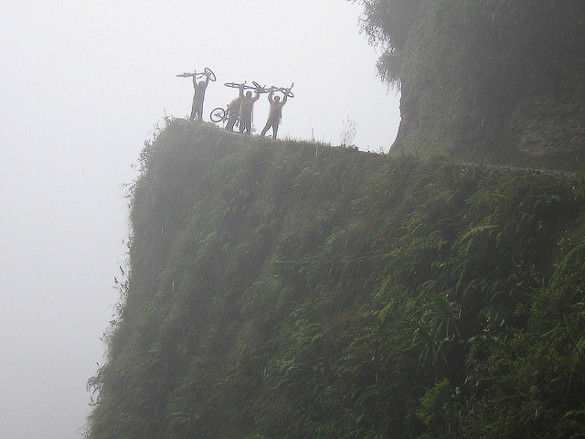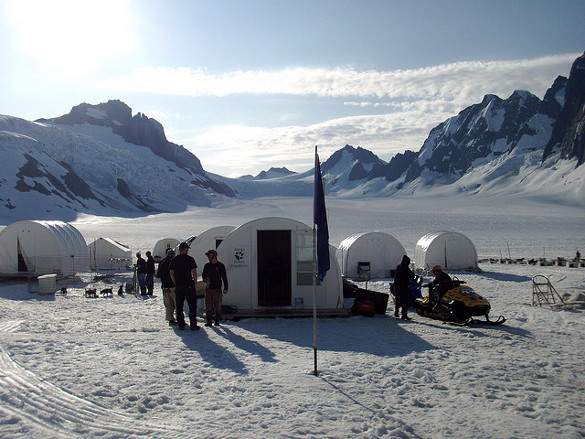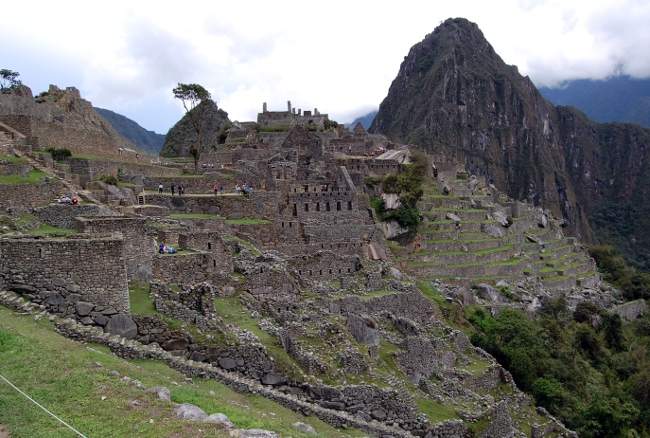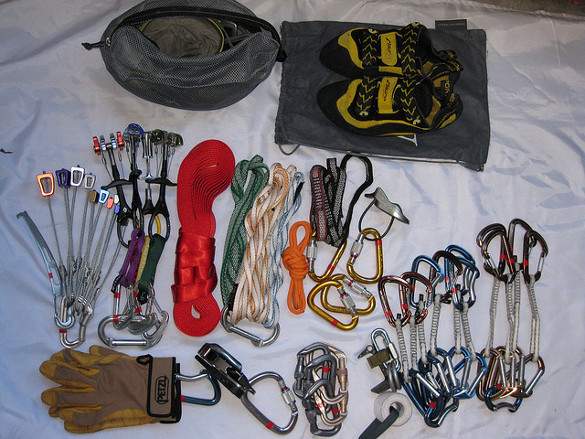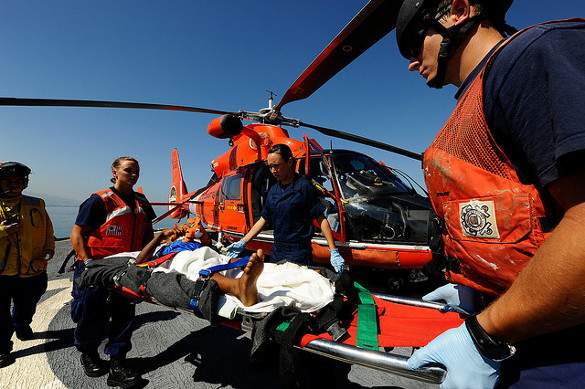Huffing and puffing, you make your way towards the top. The sign is in view. You are almost there. Excited, hurried, and breathing heavily, you take those last few steps through the Sun Gate. There it is. Gleaming below in the first rays of morning sunlight, after four days of hiking, you have finally arrived. Machu Picchu is below, and you see it for the first time in all its glory.
How do you get to that point, though? If hiking the Classic Inca Trail to Machu Picchu is on your must-see travel wish list, what do you have to do to make that happen? What if you want to hike to Everest base camp? How about climbing a volcano in the South Pacific? Fancy jumping out of an airplane over New Zealand? Riding a bike down the World’s Most Dangerous Road in Bolivia? Ziplining in Thailand? Whitewater rafting in Africa? A multi-day trek in Patagonia?
All the above adventure activities are on the lists of millions of travelers world-wide, along with a myriad of others. When you travel to a foreign country to take part in activities like these, you have to be organized. You don’t just show up, pick the first tour operator you see, sign some papers, give them your credit card, and take off (well, maybe this guy does, but it’s not advisable).
From choosing the right tour operator to questions to ask to what to pack and everything in between, this guide will lead you through all the decisions that must be made when planning that epic adventure on your next trip.
How to choose a tour operator
Choosing a tour operator is often frustrating and difficult. Reading reviews helps, but they sometimes muddle the decision making process. When thousands of people have taken tours with a particular company, there are going to be differing opinions, period. Some will think the tour they took was the greatest ever, while some will say it was the worst experience of their lives.
So how do you discern which reviews are right and which ones to trust? How else do you go about choosing the correct tour operator? How do you find the right balance between cost, safety, and comfort? Here are several tips and things to keep in mind when choosing a tour operator:
- Despite being on a tight budget, don’t go cheap on tours that involve legitimate safety concerns. For example, when riding the World’s Most Dangerous Road in Bolivia, an activity where tourists actually die each year, you might want to buck up for a reputable tour operator.
- If at all possible, go to the tour office and talk to someone in person. If you’re on a short trip, sometimes this isn’t possible. If you can swing it, visiting and seeing for yourself how organized a company is, how friendly and knowledgeable their staff is, and how well you gel with the people who work there is invaluable to choosing the correct operator. You may even be able to negotiate a lower cost while there.
- Trust your instincts. If you just have a bad feeling, no matter how many good things you’ve heard and read, trust that feeling.
- Talk to as many people as possible who have done the activity you want to do. Whether it’s fellow travelers, travel bloggers, or people on message boards, try to interact with as many people as possible instead of just reading reviews. Being able to ask specific questions is so much more helpful than simply reading a review.
Questions to ask when researching tour operators
Questions to ask when researching tour operators for adventure tours vary depending on the activity. But there are still a basic set of questions one should ask that are important no matter what it is you want to do.
- How long has your company been in business? This isn’t a make or break question, but if a company has been in business for 50 years, there is typically a good reason for that.
- What is your safety record? How many people have been injured on one of your tours? If they backpedal or can’t provide this information, that might be a red flag. Sometimes the reaction to this question is just as important as the answer itself.
- Can you put me in touch with former customers who have taken your tour? Good tour companies should have no problem digging up a handful of email addresses for you in order to contact former customers. Being able to talk to someone who has taken the tour, preferably recently, is a great help to your research.
- Exactly how long does the tour last?
- Is transportation provided? What is the mode of transport?
- Are any meals provided? Which ones? What type of food is served?
- What are the sleeping arrangements if this is a multi-day tour?
- What equipment do you provide? What do you recommend I bring?
- What is the maximum number of people who will be in our group? What is the ratio of guides to tourists? A big group isn’t bad sometimes when you have multiple guides, but if you have a group of 20 with only 1 guide, you may not receive the type of service you want.
- What is your commitment to responsible tourism? In many parts of the world, this is a major issue. The exploitation of local people and irresponsibility when it comes to the environment are major concerns.
- What paperwork is necessary for the tour? If you’re heading to a country specifically for this tour and a visa is needed, do they take care of it for you? What else must you show or prove in order to go on a tour? Any vaccinations? Malaria medication?
- What is your cancellation and refund policy? You never plan on having to cancel a tour, but sometimes unforeseen circumstances arise. Knowing what it will cost you is always important.
>> Learn about ways to experience sustainable travel
Book your tour at home or wait until you arrive at your destination?
Sometimes waiting just isn’t possible, but if you have a choice, what is the best option? It really does depend on the activity and tour you’re planning to take. For example, if you want to hike the Classic Inca Trail to Machu Picchu on a specific date, booking months in advance is typically necessary. But if you’re on a longer trip, aren’t on a time crunch, and are flexible, you may be able to join a group last minute, and booking an alternative trek on the spot is rather easy. No matter the activity, as long as the particular tour you’re looking for doesn’t book up far in advance, it’s always more advantageous to wait.
I can’t stress the importance of actually going into a company’s office and checking out the operation in person. If it seems chaotic and disorganized in the office, how do you think it’s going to be out on the tour itself?
How to decide what to pack?
Packing for any trip, whether it’s an adventure trip or just a regular old vacation, is a stressful and trying time for many. It’s one of the most hated parts of travel for a lot of people. Unfortunately, it’s also one of the most important. If you hope to go on a multi-day hike in the mountains, you don’t want to forget rain gear, good socks, or the proper footwear.
Make sure you ask the company for a packing list or suggestions on what to bring. It pays to do as much research as possible. If a hike is the activity you’re participating in, keep in mind that you will most likely be carrying everything on your back. You want to be prepared, but you don’t want to bring too much. Try to get in touch with someone who has done the same tour at the same time of year of you. Ask them the following three questions:
- What did you pack?
- What did you wish you had that you didn’t bring?
- What could you have done without?
Search blogs for people who have done the same tour. There is a wealth of information out there for pretty much every imaginable tour. It’s just a matter of finding them. Get on social networks like Facebook and Twitter and ask the question. You’d be amazed at what you can find out in a matter of minutes.
>> Check out some of the best adventure gear and be warned of these useless things travelers tend to pack
How to deal with annoying people on your tour
Many travelers try to avoid tours for this very reason. You never know who is going to be in your group. Everyone is different, and when you get a group of strangers together, chances are there will be someone who you don’t mesh with. Other times that guy is in your group, and he or she manages to annoy everyone else in the group, guide included. You know the signs. There’s the question guy, the person who asks hundreds of idiotic questions. Or the know-it-all, the one who corrects the guide and knows more about the tour than everyone else. Or the I’m the most well traveled person guy, the one who has seen and done something better than the activity you’re doing now.
The best thing to do in these situations is simply try to avoid that guy. Just keep your distance and try to ignore him or her. Letting that annoying person in the group get on your nerves will just ruin the trip for you. If it gets to the point where that person is really affecting your good times, talk to your guide and let him or her know your feelings. Chances are that other people in the group (guide included) are just as annoyed at that guy, so get a few people together and calmly discuss your concerns with your guide. It’s his or her responsibility to take it from there.
>> Check out ten backpacker stereotypes you’ll meet on the road
Travel insurance-yay or nay?
Everyone has to make his or her own decision when it comes to travel insurance, but it ultimately comes down to a few deciding factors.
- Where does your tour take place? If it’s in the US and you aren’t American (or don’t have insurance), then you might want to take out an extra policy. You don’t want to get seriously injured and have to go the hospital in the US without insurance. You could be paying for it for a very long time.
- How long is your trip? If you are taking part in an adventure activity as part of a short vacation and you’re on a time crunch, then you may want to purchase some type of trip protection to protect you in case something unforeseen happens, particularly if your tour is expensive. If you are traveling on a RTW and have time, then this might not be as important as you can just reschedule.
- Consider emergency evacuation insurance. If you have a minor injury in most countries in the world not called the United States, a trip to the hospital or doctor most likely won’t break the bank. But what if you get seriously injured in a country like Laos and have to be airlifted back home? That won’t be quite as cheap, and most travel insurance companies offer some type of emergency evacuation insurance.
- Read the fine print. Many travel insurance policies do not cover injuries that occur during extreme adventure activities. Each company defines adventure activities differently, and many offer an extreme sports add on for an additional charge. So if you do decide to get travel insurance, make sure it will cover the activity you plan on participating in.
>> Learn more about travel insurance
When adventure trips go bad—what to do?
Unfortunately, sometimes trips go horribly wrong. No matter how much homework you do, sometimes you just get screwed, make a poor decision, or get duped. So what do you do when a trip goes wrong? How can you go about getting your money back? No matter what the company’s guarantee is, ultimately it’s up to them to decide whether or not to refund your money. No matter how angry you are, storming into the office at the end of the tour screaming, yelling, and waving your arms in the air is not the best way to go about getting a refund. Trying to remain calm and expressing your opinions in a rational manner is your best option.
If they are adamant about not refunding your money, then start with a few threats. Again, remaining calm is the best course of action. Make sure they know you will slam them in reviews on sites like Trip Advisor. Don’t underestimate the power of social media. Threats could change their mind, but if they are the type of company who puts together poor tours and then refuses to refund your money, it’s a good chance it won’t change their minds. Unfortunately, sometimes you just get screwed and you have to take it.
A lot of time and effort goes into choosing the right adventure tour. When you are literally putting your safety on the line, it pays to do all your homework and make the best, most informed decision. Being organized and talking to as many people as possible who have done the tour you wish to do are the best ways to make sure you get the most out of your experience.
>> Read about lessons learned from travel disasters
What adventure activities have you taken part of during your travels? How did you go about choosing the right company? Do you have any tips that weren’t covered here? Let us know in the comments below.
Read more about adventure travel or search for your perfect adventure trip:
- 8 Ways to Go Downhill in New Zealand
- Water Adventures in Costa Rica
- 14 Extreme Travel Activities to Get Your Heart Pumping
Adam Seper and his wife, Megan, decided that 50+ hour workweeks with 2 weeks of vacation a year simply wasn’t going to cut it. So they decided to take a leap of faith and put The American Dream on hold. In October 2008, they took off on an epic, year-long adventure, traversing the globe and traveling to 89 cities and 11 countries across 4 continents, never to be the same again.
Now Adam is going to tell you how you can plan your own epic adventure. Every week, on “Round the World Wednesday” he’ll share tips for planning, budgeting and selecting a route, plus advice on where to go and what to see and do all around the world.
Photos by: 1, 2, 3, 4, 5, all others by the author and may not be used without permission
